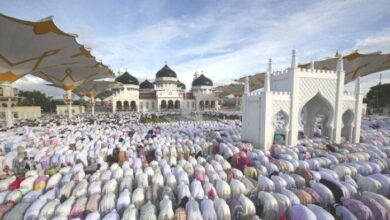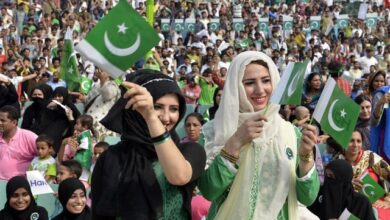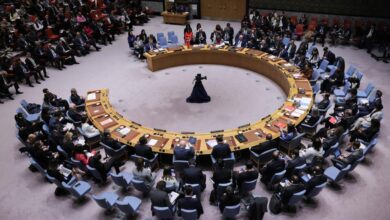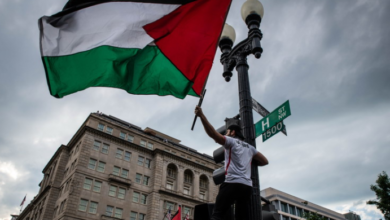The Search for Islam Walang Sungsang
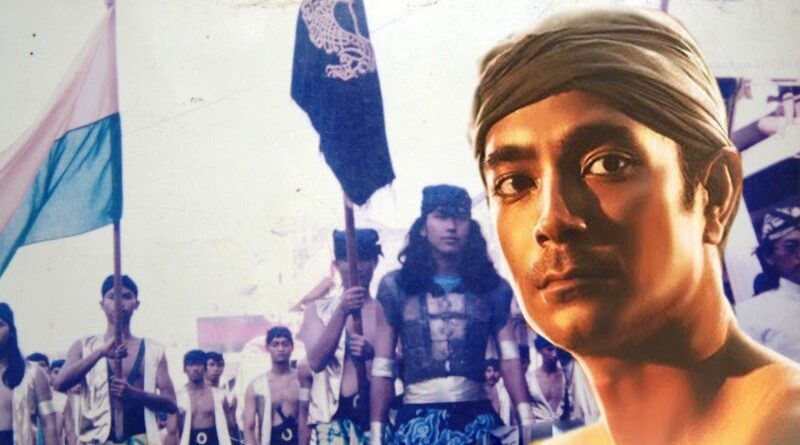
[Historical Short Story by Fatchuri Rosidin]
That day in 1422 the Pajajaran palace was excited. A violation of tradition occurred. The crown prince, Pangeran Jaya Dewata, married a Muslim girl named Nyai Subang Larang, a student of Syeikh Hasanudin from Pondok Quro Karawang. While traveling to Karawang, the prince was amazed to hear the chanting of the verse al-Quran which is being read by Subang Larang at Syeikh Hasanudin's Islamic boarding school Pondok Quro.
The marriage gave birth to 3 children: Raden Walang Sungsang who was born in 1423, Nyi Rara Santang in 1426, and Raden Kian Santang a year later.
Jaya Dewata also ascended the throne to replace his father and received the title Sri Baduga Maharaja. The Sundanese people know him as Prabu Siliwangi.
This article is not about the king, but the crown prince, Raden Walang Sungsang. The story begins that night while in his sleep, Walang Sungsang dreamed of meeting the Messenger of Allah who told him to go deep in Islam. Walang Sungsang had long been interested in Islam as taught by his mother. So the next day he asked the king's permission to go wandering.
From the Pajajaran palace in Bogor, Walang Sungsang wandered eastward looking for a teacher who could teach him Islam. His journey arrived in the Amparan Jati area and met Ki Gedheng Tapa, the syahbandar of Muara Jati Cirebon. Ki Gedheng Tapa is the father of Nyai Subang Larang, aka Walang Sungsang's own grandfather.
By his grandfather, he was introduced to Sheikh Datuk Kahfi and became his student. Cirebon people are more familiar with Syeikh Datuk Kahfi as Syeikh Nurjati which means the teacher who illuminates teak.
At the palace, Rara Santang missed her brother. He also went after Walang Sungsang and studied Islam together under the guidance of Sheikh Nurjati. And so, the light of Islam enlightened them, opened their horizons about life, and opened the world wide horizons through the history of the caliphs, sultans and scholars.
Pajajaran turned out to be only a small kingdom compared to the Islamic caliphate and sultanate that stretched very widely. Islamic countries were the most advanced civilizations in the world at that time which spanned almost half the world.
From its center in Egypt under the Abbasid caliphate, Islam has expanded to the far east to western China, north to Kazakhstan in Central Asia, south to India, even extending to Southeast Asia to Champa (Vietnam), Malacca and the Pasai Ocean. To the west, Islam had spread throughout Africa and into Europe in Spain and Portugal with Granada at its center.
So after completing their education at Syeikh Nurjati's hermitage, Walang Sungsang and Rara Santang immediately agreed to their teacher's suggestion to study more deeply from scholars in the Arabian peninsula. Those whom Sheikh Nurjati gave the new names Somadullah and Mudaimah continued their adventures to Mecca by boarding the merchant ships of Muslim merchants from the Arabian peninsula who returned from a trip to buy spices in the archipelago.
At that time world trade was dominated by traders from the Arabian peninsula, Gujarat and China. The kingdoms in the archipelago became the largest producers of the world's most expensive commodities at that time: spices. Europe still has not found a trade route to the archipelago so that it can only get spices from Muslim traders through Konstrantinople.
A new chapter has started. In Mecca, Walang Sungsang and Rara Santang performed the pilgrimage and gained knowledge from the great scholars of that era who lived in Mecca. While in the holy city, they stayed at the house of Sheikh Nurjati's younger brother, Syeikh Bayanullah.
The journey of knowledge while in Mecca has complemented Islamic insights and strengthened the spirit of preaching the sons of King Siliwangi. Soon they will change the history of Sundanese land. Walang Sungsang was ready to return to the land of Sunda and start his preaching.
Rara Santang, did not accompany him home because he married one of the princes of the Abbasid caliphate in Egypt named Syarif Abdullah. The title of syarif in front of his name indicates that he is still a descendant of the Prophet. Rara Santang also received the title syarifah. Syarifah Mudaimah. Later their marriage gave birth to a great Javanese cleric: Syarif Hidayatullah alias Sunan Gunung Jati. In fact, the preaching of Islam in the archipelago was mostly carried out by the Prophet's own descendants.
Walang Sungsang has now arrived on the island of Java. He did not return to the Pajajaran palace, but chose to live with his teacher to start preaching in Java. Then he moved to Caruban, an area that was recently opened by Ki Danusela, a port boss of Muara Jati.
Seeing the intelligence and honesty of Walang Sungsang, Danusela made him a confidant and gave him the position of Raksa Bumi. Not only that, Danusela also admired the nobility of Walang Sungsang and finally converted to Islam.
After Danusela's death, Walang Sungsang replaced his position to lead Caruban with the title Cakraningrat. In the hands of Walang Sungsang, Caruban grew rapidly from a small village to a developed village, and even developed into a bustling and calculated port city on the coast of Java. The preaching of Walang Sungsang is even more widespread. More and more Caruban residents who later converted to Islam.
Caruban's progress was heard arriving at the Pajajaran palace. And how shocked Prabu Siliwangi was to know that the architect of Caruban's progress was the crown prince of Pajajaran himself. Prabu Siliwangi also sent a Pajajaran envoy to Caruban and officially appointed Walang Sungsang as the ruler of Caruban and the representative of the Pajajaran central government with the title Sri Manggana. Palace was built. The name Caruban was changed to Cirebon.
From a small village, Cirebon is now a flourishing trading city and the most important center for the spread of Islam on the west coast of Java. Its influence continues to extend to the surrounding areas. After the death of Prabu Siliwangi and the waning of Pajajaran's prestige, Cirebon broke away from Pajajaran and became the first Islamic kingdom in the land of Pasundan.
That was the dakwah episode which watered the Sundanese land. The combination of the sharp vision of a teacher (Syeikh Hasanudin), the determination of Subang Larang to maintain the faith and teach it to his children in the midst of Hindu culture at the Pajajaran palace, the spirit of finding the truth of a young Walang Sungsang who was willing to leave the luxury of the palace, met the patience of Sheikh Nurjati who guided him, has changed history of Sundanese land and gave birth to the kingdom of Cirebon.
How about us? What history will we carve in Indonesia? What roles will we choose? Become a young man who left comfort in order to seek knowledge? Or be a mother who is strong in keeping her faith and teaching it to her children? Or become a teacher who inspires young people? [Source: www.fatchuri.com] [DDHK News]
Fatchuri Rosidin is the Director of IMZ Consulting, a consultant and public speaker in the fields of motivation, human resource development, leadership, parenting, and community empowerment.
